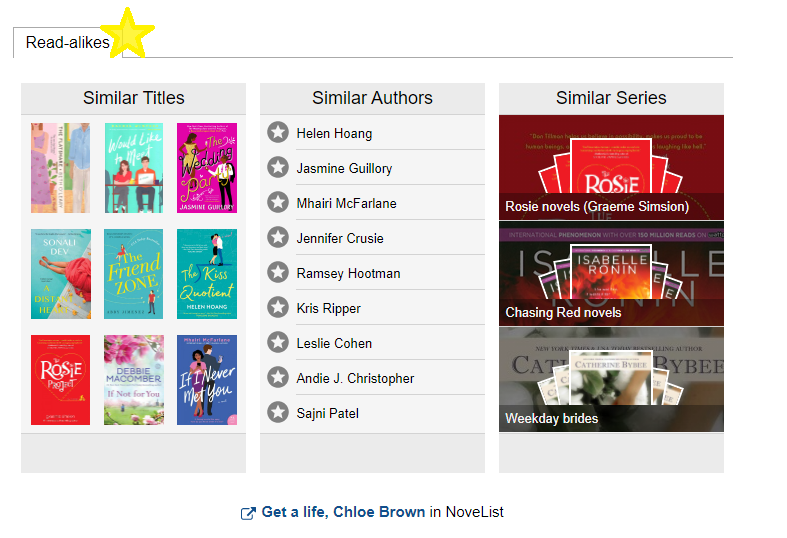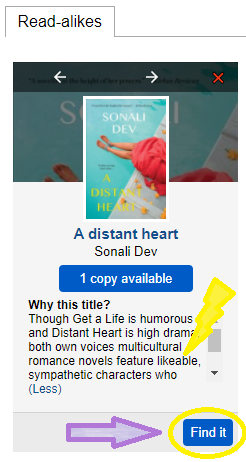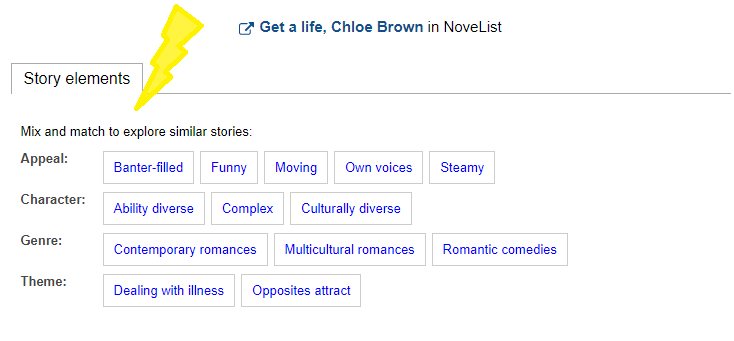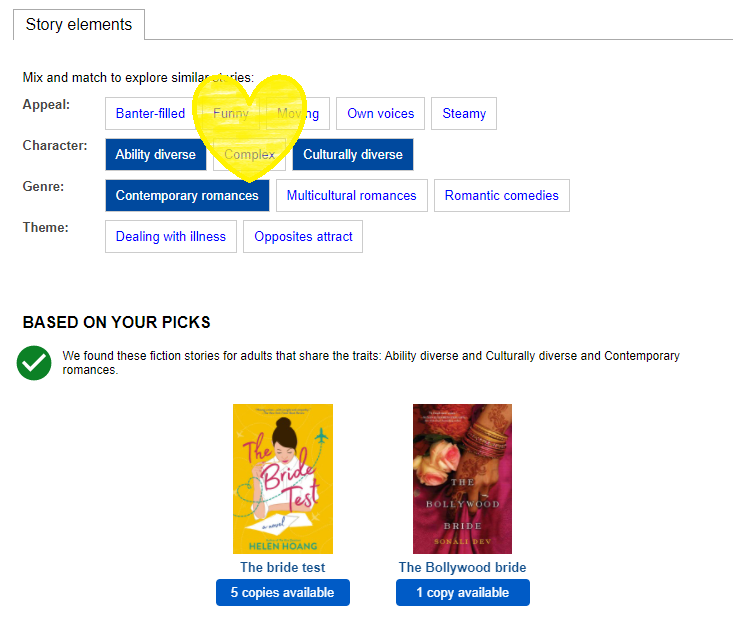Posted by Melody on Tuesday, Oct 20, 2020
Voracious readers, take note! When you want to get into a new book but don’t know where to start looking, ICPL’s Catalog has a tool that helps you find books similar to your favorites. Librarians call them “read-alikes,” and you can find them on your own if you know where to look.
How to Find a Read-Alike
1) Start by looking up a book you loved. I read one of Anne W.’s Black Lives Matter: Romance recommendations and wound up completely loving the book. Get a Life, Chloe Brown by Talia Hibbert was outside of what I normally read, so I felt lost when I was hungry to read another book like it.
The “More Details” section gives me subjects I can explore, but those can be hit or miss. I’ve got to keep looking.
2) Scroll down and find the section called “NoveList Results.” Once you see “Similar Titles,” you’ve found the treasure map that will lead you to the next best pick.

Already I see another book and author I loved. I can then read why these books are recommended for fans of Hibbert's book. Sure enough, this pick describes a reason why I loved that book. It had “likeable, sympathetic characters who have been affected by chronic medical conditions.” That combo delivered a story I could get into.

3) Click Find it to go to the book in the catalog.
Unfortunately, not all books have summaries. The one I’m curious about does. Reading through it, I definitely will be putting it on my to-read list.
Exploring through Story Elements
“Likeable characters” happens to be a story element. Now that I think about it, the majority of books I read have likeable characters in them. The ICPL Catalog gets its story element terms from NoveList, a company who has its own specialty catalogers, and they break them down into four major categories: appeal, character, genre, and theme.
You’ll see the Story Elements section after scrolling past the Read-alikes. You can select those terms to explore books that contain those elements.

Pick what you liked about the book you read to see recommendations for books that also have that story element.
When I finished reading Get a Life, Chloe Brown, I left wanting to read more funny books with ability diverse characters. I can choose both those options to see where that leads. If nothing looks interesting, I can mix and match other terms that describe why I liked Hibbert’s book.

Give it a try! It’s fun. It will give you insight into why you love the books you do while finding even more to enjoy.


This book gets my vote for prettiest cover on the new nonfiction shelves right now. It's history, mythology, and earth science packaged into smart essays that revel in humanity. -Melody